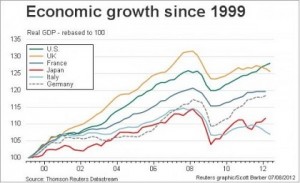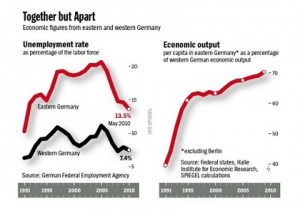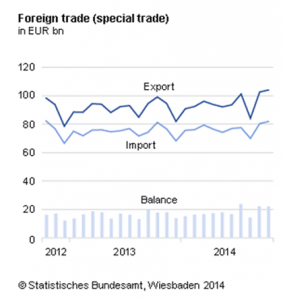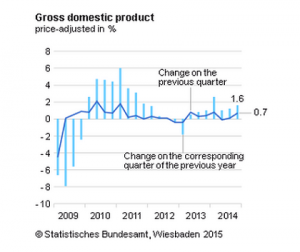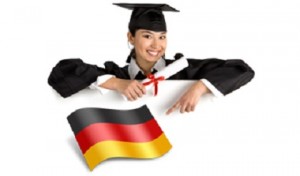German management, as it has evolved over the centuries and has established itself since World War II, has a distinct style and culture. Like so many things German, it goes back to the medieval guild and merchant tradition, but it also has a sense of the future and of the long term. The German style of competition is rigorous but not ruinous. … [Read more...]
Deutsche Mark – National German Currency
At the core of Germany's success and influence lies its currency. The deutsche mark gave concrete expression to West Germany's international financial and economic success and also contributed to it. Since unification, it has become even more important as a symbol as well as an instrument of Germany's new central role in Europe. The success of the … [Read more...]
Germany in the World Economy
Along with the United States and Japan, Germany has one of the world's biggest economies and most dominant central banks. Of the three, Germany has the smallest and most vulnerable economy. Germany's GDP of DM3 trillion is less than one-third of United States GDP and less than one-half of Japan's. Despite Germany's relatively small size, it has … [Read more...]
Impact of Unification on German Economy
The East German and West German economies at the time of unification looked very similar. They both concentrated on industrial production, especially machine tools, chemicals, automobiles, and precision manufactures. Both had a well-trained labor force and an important export component, although their exports went largely in opposite directions. … [Read more...]
The Economic Miracle of Germany
The economic reforms and the new West German system received powerful support from a number of sources: investment funds under the European Recovery Program, more commonly known as the Marshall Plan; the stimulus to German industry provided by the diversion of other Western resources for Korean War production; and the German readiness to work hard … [Read more...]
Bundesbank
The single most important economic institution in Germany outside the federal government is the central bank, the Deutsche Bundesbank (commonly called the Bundesbank). It has the dominant voice in German monetary policy. Through that voice, it establishes and maintains a firm policy in favor of solid currency value within Germany and increasingly … [Read more...]
German International Economic Relations
Ever since its creation in 1949, the Federal Republic of Germany (FRG), or West Germany, as it was also called until its unification in 1990 with the German Democratic Republic (GDR, or East Germany), has played an increasingly important role in the world economy. Consistently among the most important trading nations in the world, Germany often … [Read more...]
The Domestic Economy of Germany
The German economy is full of contradictions. It is modern but old-fashioned. It is immensely powerful but suffers from serious structural weaknesses. It is subject to national laws and rules but is so closely tied into the European Union that it is no longer truly independent. It has a central bank that controls European monetary policy and has a … [Read more...]
German Economy
The Germans proudly label their economy a "soziale Marktwirtschaft ," or "social market economy," to show that the system as it has developed after World War II has both a material and a social--or human--dimension. They stress the importance of the term "market" because after the Nazi experience they wanted an economy free of state intervention … [Read more...]
Tertiary or Higher Education in Germany
With hundreds of respected universities to choose from as well as its location in the heart of Europe, it’s no wonder that Germany consistently ranks as one of the most popular countries in the world in which to study. There’s Berlin, steeped in history while maintaining a laid-back, trendy feel, and then there is Munich, with its industrial heart … [Read more...]
- « Previous Page
- 1
- …
- 9
- 10
- 11
- 12
- 13
- 14
- Next Page »


